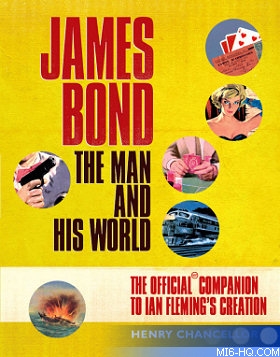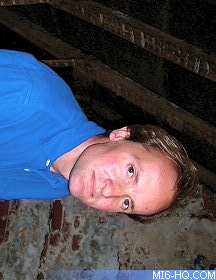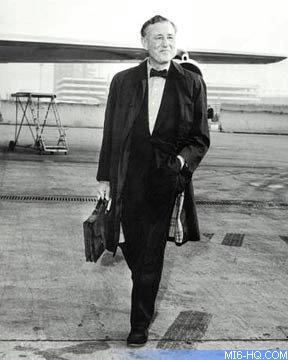|
|
|
 |
| |
MI6 caught up with Henry Chancellor to talk about
his new book "James Bond: The Man And His World"
|
|
Henry Chancellor Interview
26th October 2005
| How long have you spent researching
and writing your first edition, and why did you decide to
write a reference book exploring Fleming's literary creation?
This book took about a year from start to finish. My reasons
for writing it involved a fair amount of serendipity. I
had previously written a book about Colditz and I had worked
on other projects about intelligence and spies, particularly
during the Second World War and after. The editor of my
Colditz book had heard that the Fleming Estate was thinking
of opening up the archive, and asked me to think about how
I might turn it into a book. So I wrote them a proposal
and luckily for me they liked the approach and let me in.
Did you develop your coverage in the order of the books?
I did start with the books, which I read in order. I had
seen most of the movies at one time or other but could not
remember reading much original Fleming, and it was an unexpected
pleasure as they are so different. The level of detail was
really dictated by what was there in the archive, and how
much I realised I did not know. There are over 150 box files
of Ian's stuff, everything from cinema tickets to passports,
menus, flight plans- you name it. As I am not a paid up
Bondologist I decided only to use what I found interesting-
which was my premise from the start. |
|

 Order
Paperback (Amazon UK)
Order
Paperback (Amazon UK)
 Order
Hardback (Amazon UK)
Order
Hardback (Amazon UK) |
What new material and value does your book bring to a Bondologist?
Well it seems to me that most Bondologists concentrate on the films.
If you want to know about Fleming’s original literary creation,
how it came about, how he wrote it, why he wrote it, why some books
are better than others, what people thought of them at the time...
and you want to know more about Fleming himself, then this will
interest you. I have also tried to contextualise the whole thing
as well, so Bond can be seen as a man in his time. Also there are
lots of pretty pictures from the archive that no one has seen before,
bits of stories no one has heard of, letters about Bond that have
never seen the light of day.
| 
Above: Author Henry Chancellor
|
|
The book explores a lot of Fleming’s
non-fictional works including photos, how long did it take
you to gather this research and fully explore it?
That took a while. There is a lot of Thrilling Cities material
which is great, and I was effectively going around the world
again via all the ephemera Ian Fleming collected on his
trip. Not that I minded as he was a great travelling companion.
Which was the most interesting book to research and
why?
From Russia with Love is very interesting, because there
is some unusual original research in it. But they are all
good, because Fleming could not help writing about himself.
|
The style and layout of the book is fantastic did you have
any input into its design if so what was you main inspiration
for this?
I did have some input, because I knew the most visual parts of
archive, and where the most interesting letters were.
Also, I kept coming back to the books, and trying to remind myself
who said what to whom in each- and which events inspired them.
To help myself I wrote summaries of the books and inspirations,
critics etc, and Gordon Wise my editor agreed that this would
be very useful for the general reader as well. So that’s
how they came about. It was the same with the lists of drinks,
names, places journeys etc. Gordon was keen for these to be like
box features. He also came up with the size, as he thought people
should be able to read it while sitting up in bed. Not too big
and heavy. I think he's right- a good rule of thumb for larger
books.
| What range of material/facilities/people
did you utilize?
Everything in the Fleming Archive, which was kept in a strong
room in the vaults of Fleming’s bank in London. The
people who look after it were very useful. And Ian's two
nieces, who shared their memories of him and put me in touch
with a few other people. Also, I spent a long time in various
libraries, the PRO, etc, giving myself a crash course in
everything from 1950s cooking, 1930s engine design, cheating
at cards, Soviet agents with licence to kill, and techniques
of skin diving - to name but a few. There was a lot to find
out.
What did the IFP contribute to your project?
They opened the door and let me in. It would be impossible
to do this without them.
What was the most valuable resource you utilized during
the research of this book?
The floor of my shed where I work. It was covered with photocopies-It
looked like ten people had decided to play patience using
A3 sized cards all at the same time.
|
|

Above: Ian Fleming |
Do you have any future plans for Bond projects?
There is a possible project in the pipeline. But we will have
to wait and see...
Related Articles
 James
Bond: The Man And His World - Preview James
Bond: The Man And His World - Preview
|
|
|